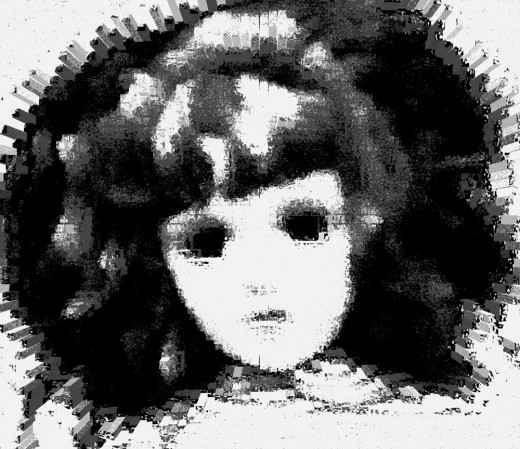Understanding Dreams
What Are Dreams?
This is a question as old as humankind itself. For millenia, people have been asking this, and trying to invent answers. Oracles, seers, priests and priestesses, shamans, medicine men; all have sought to explain the phenomenon of dreaming by ascribing meanings to the subject matter of dreams.
I'm not going to delve into the scientific side of the mechanisms of dreaming--suffice it to say that we do need to dream. That is our deep sleep, or "REM" sleep mode, and if we are deprived of that state frequently, it does affect both our health and our ability to function mentally. Dreams are an assortment of things--release mechanisms for stress; idea factories; fantasy explorations; and sometimes messages.
The seers and oracles of old made much of dream subject matter, interpreting these things as omens, portents, harbingers and in general future-casts of what the dreamer could expect to happen in his (or her) life. Seldom were these predictions very favorable. Those were dark days, with much superstition and hard luck. It's no wonder they saw everything in the negative aspect.
Types of Dreams
Dreams can be classified into a few rough categories, which sometimes overlap each other. We all know how a dream can 'morph' from one subject into another, either with a slow dissolve or an abrupt jump-cut into an entirely different scenario: we've all experienced this, I'm sure.
However, I'm going to list 5 main dream types or styles:
- Release of tension or stress dreams
- Pure fantasy dreams
- Precognitive or clairvoyant dreams
- "Wake up!" message dreams
- Nightmares
Mind you, I'm not claiming theses to be scientific labels by any means; they are simply what I've worked out for myself based upon observation and conversations with others. I'll explore each one at a time, below.
Dream Interpretation
Unlike the days of old, when interpretation of dreams was based upon superstitions and secret knowledge (probably whatever drug the seers were taking to achieve their "inner sight), we now know that dreams speak to us in metaphors rather than actual, true events. It's sort of like a code using a substitution cipher.
For example, a dream about trying to, say, empty a swimming pool with a drinking glass could be a metaphor for feeling like you are 'drowning' in some type of emotional distress, or it could be closer to a real scenario, say you may have just had to fix a leak, and are concerned about others, or whether the fix will "hold."
Dreams about destruction--by whatever means--can potentially indicate the need or desire to erase your current situation and start fresh--on whatever level: job, marriage, location, and so on.
Those are just some examples, and are not set in stone. Each person's dream imagery will come to them in ways that (upon analysis) will make sense to them and their situation.
Release of Tension Dreams
In my opinion, these are the crazy-mixed up types of dreams that make no sense of any kind. The images are jumbled, you run from one thing into the next and the next with no sense of continuity or cohesion. Crazy, impossible things happen, but this is not the stuff of fantasy. Sometimes, the events are disturbing, at other times funny and often just plain confusing.
These can be the dreams where you wake up laughing, feeling sad, or just saying, "What the hell was that all about?!"
What it was about was your brain running back through the day, or the last week or month or so, and calling up fragments of memories, random gleanings from Mother Nature, the news and ancient cobwebs from your distant past, tossing them all into a virtual blender and serving you up a "smoothie" with lumps in it. It's probably never going to make sense no matter how much you try to analyze it. So, leave it at the "WTH?" sentiment and forget about it.
Fantasy Dreams
OK--we've all had these, right? They can be scientific or science fiction fantasies, in which we interact peaceably with strange creatures; learn to fly without machines; go scuba diving with no air supply needed; write the Pulitzer Prize winning book; win elections; run marathons and so forth.
(No, fantasy dreams do not have to be sexual in nature, although many are, but it is not a pre-requisite for classification as fantasy.)
Fantasy dreams can be fun--especially if they give you an idea or a nudge to try a new craft, hobby, job, return to school, or some other activity or experience that may affect your future life.
Precognitive or Clairvoyant Dreams
These dream types come in on the sneaky side. You may not realize the fact of the matter until days or weeks later, or it could be the next day; it could be next month or next year. By the time the event happens, you have probably forgotten about that dream, remembering it only at the time with a flashback to the dream.
This happened twice that I am aware of with my parents. The first such recollection I heard was of my father telling of having a conversation with his dad regarding the outcome of a presidential election. My father at the time, was still a bachelor living at home. He'd gone to bed on election day, and in the morning, his father stated that he was going out for a newspaper to see who had won. My father said, "You don't need to: so-and-so won."
His father was quite startled, and demanded how my dad knew that. "I dreamed it," was the reply. Well, grandpa went out for his paper, and sure enough, my dad's dream was true. Mind you, this was back in the 1920's--there was no instantaneous mass communication such as we today have come to take for granted. He would have had no normal means of knowing this.
The second such story comes from my mother. This was when she, too, was a single young woman in about 1942, working at an office in Hawaii, 6,000 miles from her home in Massachusetts. Again, this was before the instant around-the-world news flash. People still kept in touch by writing letters, and mail service was not speedy. You paid extra postage for air mail, instead of it being the norm, as it is today.
She dreamed of her grandmother out riding with the family in the car. Upon waking, she dismissed this as nonsense and put it down as a fantasy dream, for she knew very well that grandma was wheelchair-bound, and therefore house-bound. There were no fancy lift gates or devices for taking your wheelchair out to go shopping back then.
Lo and behold, the next letter she got from home, about a month after her dream, was from her brother. He told of how he'd removed the back seat of his car, and rigged up a way to hold gram's wheelchair in place of the regular seat, so they could take her out for a change of scenery!
WAKE UP! And Be Quick About It!
I have no doubt whatsoever that each and every one of us has experienced these kinds of dreams more than once.
This is the dream that may save your life, it you are dreaming about smelling smoke, for instance, and wake to discover that there is, indeed smoke in the house, you have time to evacuate.
This "wake up!" dream may also save you possible embarrassment and extra laundry. In this kind of dream you "have to go" ... badly, and there are no nearby facilities in the dream scape, or there is something terribly wrong with said facilities, and you just cannot bring yourself to use them.
This results in you waking up, and realizing that you do have to make a run for it in the middle of the night.

Nightmares
Nightmares are dreams no one wants to have. They are not fun or pleasurable. They are not funny. They can range from mildly disturbing to terrifying. With the exception of conditions such as PTSD, or a recent trauma or loss, there is not a particular reason for these kinds of dreams.
They can sneak up on you out of the blue, and leave you very puzzled as to the meaning, if any, of the dream. Many of these dreams can be analyzed, and if you look at and compare the dream images with what is going on in your life, you may well find a rational explanation.
Perhaps you read a scary book or recently watched a horror movie. I don't watch horror movies for this very reason.
And sometimes, there is no explanation at all. Children tend to have "bad dreams" more often than adults, as their brains learn to sort out all the new things they are learning on a daily basis. Sometimes, it overwhelms them, and the result is a nightmare. The "monster in the closet" or under the bed is a classic fear in kids, and if not handled well by the parents, can lead to some scary stuff during dream time. I recall a story of one parent handling the matter with his 5-year-old by telling the child, "Monsters are very expensive, and we can't afford any." In their case, it seemed to work...no more monster fears. The same recurring themes can show up in kids' dreams, until they are fully reassured about whatever the underlying fear may be.
I recall from my own youth, at about age 8, I would have a recurrent dream of sitting on the edge of my bed to read a book, when suddenly out of nowhere and everywhere, would come huge swarms of bats, circling me, and landing all over my book. My poor mother would rush in to my shrieks, and sit with me until I fell asleep again. I have no clue to this day. I was a pretty over-protected kid, and at that age had certainly not seen any vampire movies, nor read any such stories. Neither had I ever seen a real bat, living as I did in a large city.
But I Don't Dream At All...
Sure you dream! Everyone does. Some people do recall their dreams; some do not; others only sometimes. Don't worry about it.
Actually, it works like this: the sooner you wake up after a dream, the more likely you are to remember it clearly and in all its detail.
This is where some of the crazy transitions can happen--it may not have been in the dream itself, but in the process of trying to recall a couple of different dreams during the night--one closer to your waking time, and another further back--the images become twisted together in your memory.
The longer the span of time between the dream and waking, the less you will recall, and the less clearly. When enough time has elapsed, you'll awaken with no memory of any dreams.
Don't Go Crazy About Your Dreams
Dreams are a necessary part of our sleep cycle. Enjoy the pleasant ones; forget about the unpleasant ones, laugh at the funny ones and don't drive yourself into the loony bin trying to analyze any of them to the point where the study interferes with your day-to-day life.








